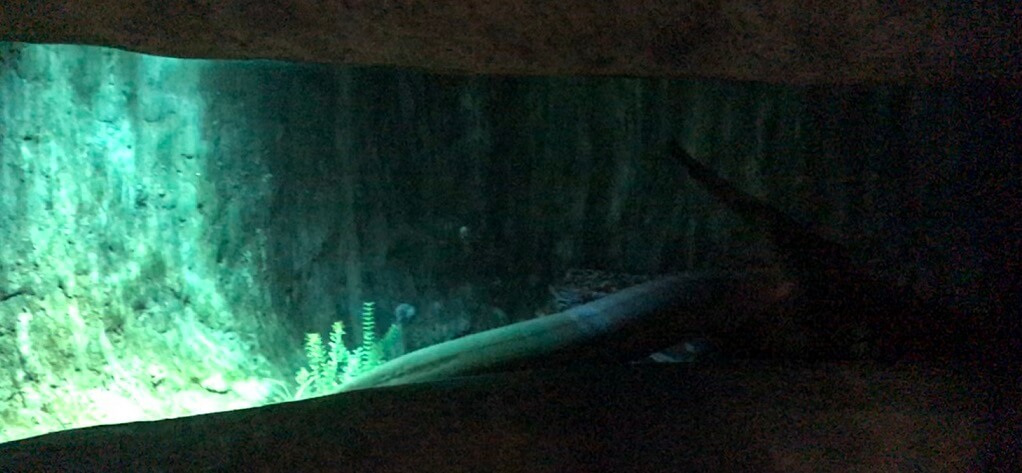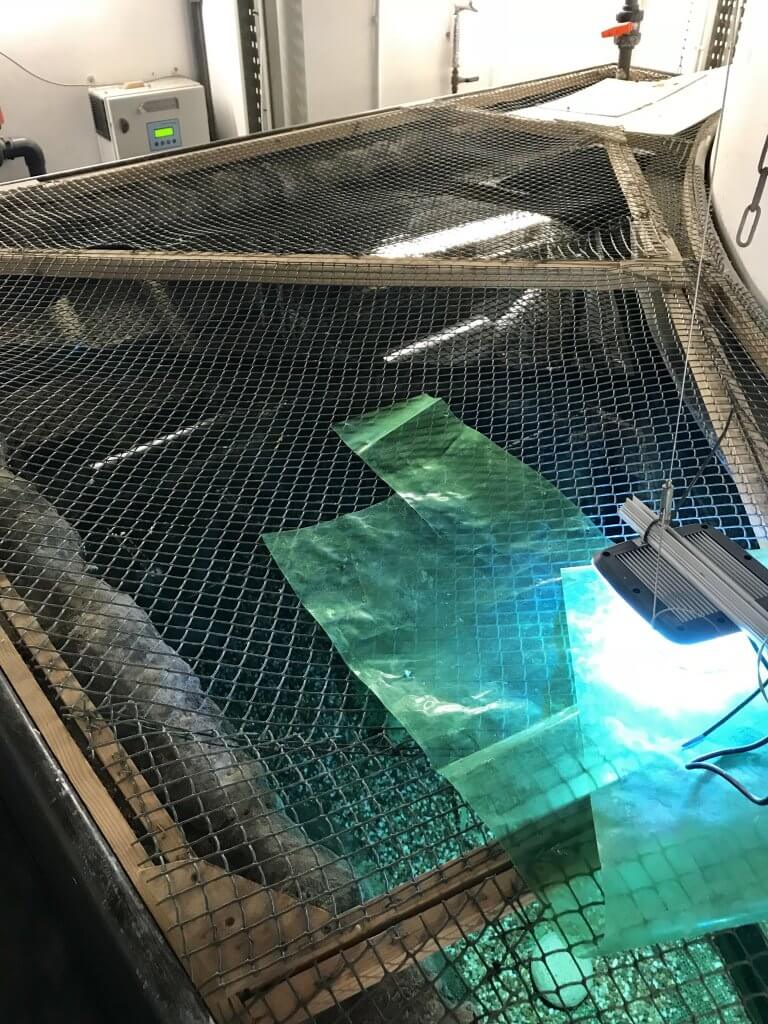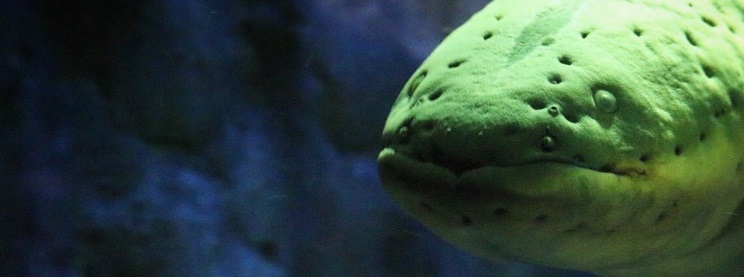(Please note we do not have an Electric Eel anymore at Bristol Aquarium)
Ask the Aquarium
Bristol Aquarium is a centre for education, leisure and entertainment. We share our knowledge of the oceans to inspire the next generation of budding enthusiasts, talking about the fascinating creatures that live in our seas and the issues that they face on a daily basis. As we are asked such interesting visitor questions we thought it was important to share a selection of these answers with everyone.
This month’s Ask the Aquarium blog features one of our most enigmatic creatures – our Electric Eel called Bolt! Bolt is one of our fan favourites for a variety of reasons: she comes with her own backstory which we will share with you here, she’s large in size and lurks in the dimly-lit shallows and the fact that she can produce strong electrical charges is in itself a wonder! Electric Eels are capable of emitting a 500-600 volt shock in order to stun their prey.
This month, Joely age 24 asks us why our Electric Eel is kept in such a small display and comments that she looked like she barely had any room to move.
We often get comments about Bolt’s display so we found this was the perfect opportunity to tell you more about this amazing creature and about her display!
At Bristol Aquarium we aim to provide naturally-themed displays wherever possible to simulate the natural environment, from our coastline displays and stretches of river to our coral reefs. This enables our animals to exhibit their natural behaviours such as whether to hide, graze algae on rocks or lay eggs.
Electric Eels are from South America and inhabit swampy outlets and shallow floodplains of the Amazon and Orinoco rivers.
There are a few reasons why these smaller spaces are best suited for an Electric Eel. Firstly, they use their electricity to stun prey which includes fish, insects, birds and small mammals! The smaller the volume of water, the more effective the electrical shock will be. If Electric Eels were to inhabit large open waters they would not be able to hunt as efficiently. The second reason these smaller murky spaces are ideal habitats is because Electric Eels have poor eyesight and cannot see far in front of them so they can maximise on occupying these areas.
The tank that we have at Bristol Aquarium is 3500 litres of warm fresh water and is actually deceptively shaped to offer our visitors the best viewing. From the front, we offer a letterbox-type view into the display however it is much bigger than you would think!
Below is a picture of the tank from ‘behind the scenes’ where you can see that it is actually triangular-shaped and offers further space at the back.
We have to be very careful when we are behind her tank due to her being a dangerous species to work with. Our aquarist team wear rubber gloves and stand on rubber mats whenever we feed her and Bolt actually shares her tank with some tiny fish which clean up all the algae and detritus at the bottom of the tank so that we don’t have to go in and clean as much!
As a zoological institution, animal welfare is at the forefront of everything we do from caring for our animals to ensuring that their displays are suitable and protected from any external influences. With this in mind, we are required to have zoological vet visits at least twice a year and these aim to scrutinise everything from our feeding regimes, health checks and also the environments our animals live in. Our zoo vet is more than happy with the size and suitability of our Electric Eel display as with all the rest of our displays.
As previously mentioned, Bolt came to us with a backstory. She was found by Heathrow Airport customs officers smuggled into the UK in somebody’s suitcase. The reason for this was to supply her into the pet trade for private sale. She was sadly found folded up in this person’s suitcase and if you take a close look at her she has a small kink in her back from being positioned in this way. After extensive quarantining she needed to be responsibly rehomed and we were in the fortunate position to have the ideal display for her to live in.
See Bolt in our Edge of Rainforest zone at Bristol Aquarium along with Red Bellied Piranhas, Blind Cave Fish, Archer Fish and our Poison Dart Frogs! Our Edge of Rainforest zone is just one of seven fully-themed areas within the aquarium offering a glimpse into the natural environments of the underwater world.

